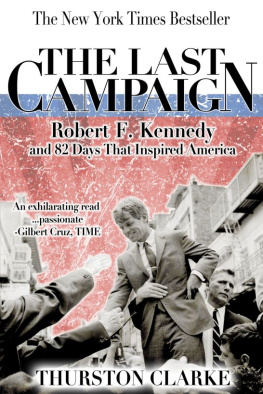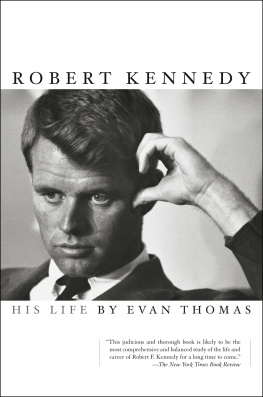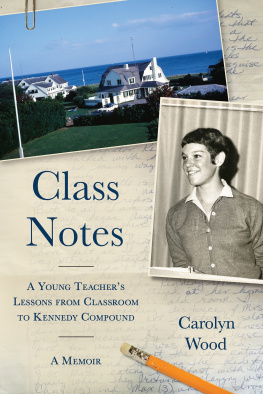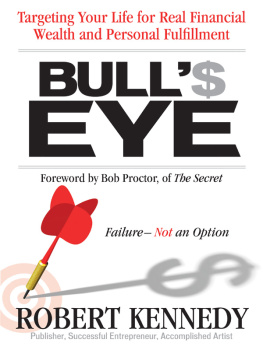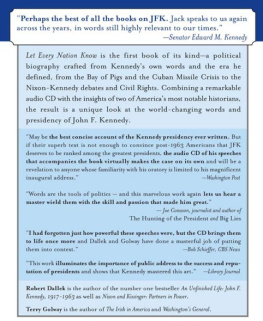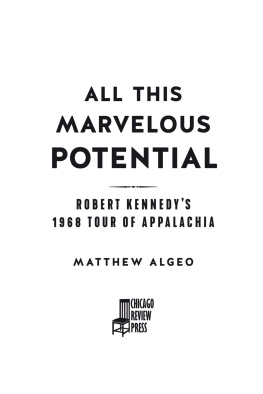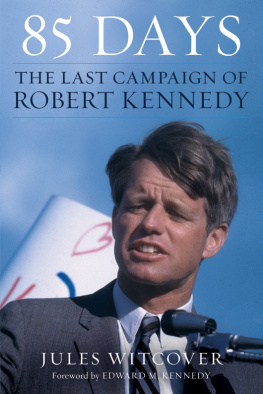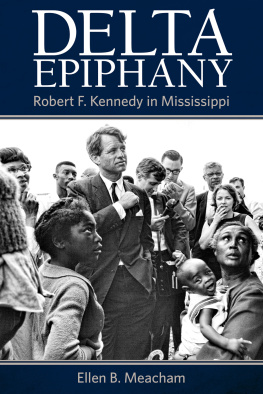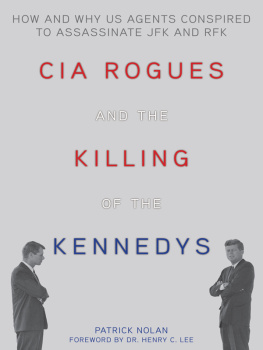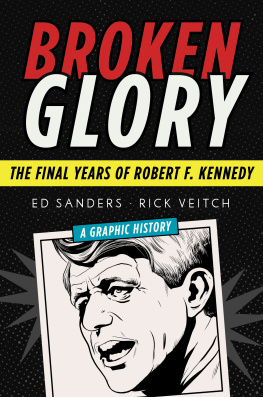Kennedy Robert F - The last campaign: Robert F. Kennedy and 82 days that inspired America
Here you can read online Kennedy Robert F - The last campaign: Robert F. Kennedy and 82 days that inspired America full text of the book (entire story) in english for free. Download pdf and epub, get meaning, cover and reviews about this ebook. City: New York;United States, year: 2009, publisher: Thurston Clarke;Henry Holt, genre: Detective and thriller. Description of the work, (preface) as well as reviews are available. Best literature library LitArk.com created for fans of good reading and offers a wide selection of genres:
Romance novel
Science fiction
Adventure
Detective
Science
History
Home and family
Prose
Art
Politics
Computer
Non-fiction
Religion
Business
Children
Humor
Choose a favorite category and find really read worthwhile books. Enjoy immersion in the world of imagination, feel the emotions of the characters or learn something new for yourself, make an fascinating discovery.
- Book:The last campaign: Robert F. Kennedy and 82 days that inspired America
- Author:
- Publisher:Thurston Clarke;Henry Holt
- Genre:
- Year:2009
- City:New York;United States
- Rating:5 / 5
- Favourites:Add to favourites
- Your mark:
- 100
- 1
- 2
- 3
- 4
- 5
The last campaign: Robert F. Kennedy and 82 days that inspired America: summary, description and annotation
We offer to read an annotation, description, summary or preface (depends on what the author of the book "The last campaign: Robert F. Kennedy and 82 days that inspired America" wrote himself). If you haven't found the necessary information about the book — write in the comments, we will try to find it.
The last campaign: Robert F. Kennedy and 82 days that inspired America — read online for free the complete book (whole text) full work
Below is the text of the book, divided by pages. System saving the place of the last page read, allows you to conveniently read the book "The last campaign: Robert F. Kennedy and 82 days that inspired America" online for free, without having to search again every time where you left off. Put a bookmark, and you can go to the page where you finished reading at any time.
Font size:
Interval:
Bookmark:
ROBERT F. KENNEDY AND 82 DAYS THAT INSPIREDAMERICA
THURSTON CLARKE
Copyright 2008 by Thurston Clarke
Smashwords Edition
All rights reserved.
License Notes: This ebook is licensed for yourpersonal enjoyment only. This ebook may not be re-sold or givenaway to other people. If you would like to share this ebook withanother person, please purchase an additional copy for each personyou share it with. If youre reading this book and did not purchaseit, or it was not purchased for your use only, then you shouldreturn to Smashwords.com and purchase your own copy. Thank you forrespecting the hard work of this author.
Lyrics to "Clack Clack / The Oldest Living SonMedley" and "Lincoln's Train," courtesy of John Stewart.
Library of Congress Cataloging-in-PublicationData
Clarke, Thurston.
The Last Campaign : Robert F. Kennedy and days thatinspired America / Thurston Clarke.st ed. p. cm.
Includes index.
ISBN-13: 978-0-8050-7792-6 ISBN-10: 0-8050-7792-8
1. PresidentsUnited StatesElection1968. 2.Kennedy, Robert F., 1925-1968. 3. United StatesPolitics andgovernment1963-1969. I. Tide.
E851.C63 2008
973.922092dc2 2 2007045880
[B]
Henry Holt books are available for special promotionsand premiums. For details contact: Director, Special Markets.
First Edition 2008 Designed by Victoria
Ebook formatting by www.ebooklaunch.com
Ask Not
Searching for Crusoe
California Fault
Pearl Harbor Ghosts
Equator
Thirteen O'Clock
Lost Hero
By Blood and Fire
The Last Caravan
Dirty Money
In memory of Marlin Miller and Wilton Pyle
Let us dedicate ourselves to what the Greeks wrote somany years ago: to tame the savageness of man and make gentle thelife of this world. Let us dedicate ourselves to that, and say aprayer for our country and for our people.
Robert F. Kennedy, speaking in Indianapolis on April4, 1968, two hours after the assassination of Dr. Martin LutherKing Jr.
June 8, 1968
In 1968, America was a wounded nation. Thewounds were moral ones, and the Vietnam War and three summers ofinner-city riots had inflicted them on the national soul,challenging Americans' belief that they were a uniquely noble andhonorable people. Americans saw news footage from South Vietnam,such as the 1965 film of U.S. Marines setting fire to thatched hutsin the village of Cam Ne with cigarette lighters and flamethrowersas women and children ran for safety, and realized they werecapable of atrocities once considered the province of theirenemies. They saw smoke rising over Washington, D.C., during theriots following the assassination of Martin Luther King Jr.,soldiers with machine guns guarding the Capitol, federal troopspatrolling the streets of American cities for the first time sincethe Civil War, and asked themselves how this could be happening intheir City Upon a Hill.
Nineteen sixty-eight was an election year,and the presidential candidates all promised to win or negotiate anend to the Vietnam War and to pacify America's cities with newsocial programs, draconian law enforcement, or both. But only onecandidate, Senator Robert F. Kennedy of New York, recognized themoral wounds and promised to heal them. Days after announcing hiscandidacy on March 16, he accused President Lyndon Johnson'sadministration of abandoning "the generous impulses that are thesoul of this nation" and said he was running to offer "a way inwhich the people themselves can lead the way back to those idealswhich are the source of national strength and generosity andcompassion of deed."
During his campaign for the Democraticnomination, Kennedy told Americans that they were individuallyresponsible for what their government had done in their name inVietnam and for what it had failed to do at home for minorities andthe poor. He said they could not acquit themselves of thisresponsibility simply by voting for a new president and newpolicies. Instead, they would have to participate in the healingprocess. Because Kennedy had managed his late brother's 1960presidential campaign and served in his cabinet as attorneygeneral, he understood that following a crude and divisive campaignwith a high- minded presidency would be difficult, and healing amorally wounded nation after running an immoral campaign would beimpossible. Because he understood this, his campaign is a templatefor how a candidate should run for the White House in a time ofmoral crisis.
Since 1968, the word hopehas become the oratorical equivalent of an American flag lapel pin,a de rigueur rhetorical flourish amounting to a vague promise ofbetter days. But the hope that Robert Kennedy offered was specific:that Americans' belief in their integrity and decency could berestored. His assassination on June 5, eighty-two days after he hadannounced his candidacy, represented not just the death of anotherKennedy or of a promising young leader, but the death of this hope.This explains why the most dramatic display of public grief for anAmerican citizen who had never been elected to the presidencyunfolded on June 8, 1968, when a twenty-one-car funeral train, itsengine draped in black bunting, carried Kennedy's body from hisfuneral in New York to his burial in Washington.
Trains carrying the remains of PresidentsAbraham Lincoln and Franklin Roosevelt had traveled at a mournfulpace, passing bonfires, bands, and weeping crowds, and stopping fortributes. But Kennedy's train was scheduled to travel nonstop andat a normal rate of speed. Crowds were expected, but no oneimagined that on a steamy Saturday afternoon two million peoplewould head for the tracks, wading through marshes, hiking acrossmeadows, and slithering under fences, filling tenement balconies,clambering onto factory roofs, standing in junkyards andcemeteries, peering down from bridges, viaducts, and bluffs,placing 100,000 coins on the tracks, waving hand-lettered GOODBYEBOBBY signs, and forging a 226-mile-long chain of grief anddespair.
Political reporter Theodore White, one of the1,146 passengers, wrote, "It was only, however, when the funeraltrain that was to bear him to Washington emerged from the tunnelunder the Hudson that one could grasp what kind of a man he was andwhat he had meant to Americans." Once the train crossed into NewJersey, mourners jamming station platforms and spilling ontonorthbound tracks forced the engineer to reduce his speed. After anorthbound express killed two people standing on the tracks inElizabeth, the Penn Central halted all other traffic on the lineand the funeral train continued to Washington at half speed. Insidethe coaches, some of Kennedy's ten children played with balloons inthe dining car while their mother, her black veil pulled back overher head, walked through the coaches, greeting mourners. Passengersate in the dining cars, drank until the bar car ran dry, orremained determinedly sober. They laughed, cried, or sat in stonysilence, found this impromptu wake distressing or a fittingtribute. But they all stared out the windows and saw their griefreflected in the faces of people whom they usually flew over orsped past.
Looking out those windows were many of thepeople responsible for the political and cultural life of thenation during the years since John F. Kennedy's inauguration: NewYork socialites and Massachusetts backroom pols, Hollywoodcelebrities and media heavyweights, star athletes and famouswriters, architects and opponents of the Vietnam War, men who hadserved in John Kennedy's administration and might have served inBobby's. There was Charles Evers, whom Bobby Kennedy had comfortedafter his brother, civil rights leader Medgar Evers, wasassassinated in 1963, and who was now thinking about Bobby: "Where,dear God, is the man to take his place?" There was Coretta ScottKing, whom Bobby had comforted after her husband was assassinatedin April of that year, and Jackie Kennedy, who had told formerWhite House aide Arthur Schlesinger that she feared "the samething" that had happened to her husband would happen to Bobbybecause "there is so much hatred in this country, and more peoplehate Bobby than hated Jack."
Font size:
Interval:
Bookmark:
Similar books «The last campaign: Robert F. Kennedy and 82 days that inspired America»
Look at similar books to The last campaign: Robert F. Kennedy and 82 days that inspired America. We have selected literature similar in name and meaning in the hope of providing readers with more options to find new, interesting, not yet read works.
Discussion, reviews of the book The last campaign: Robert F. Kennedy and 82 days that inspired America and just readers' own opinions. Leave your comments, write what you think about the work, its meaning or the main characters. Specify what exactly you liked and what you didn't like, and why you think so.

